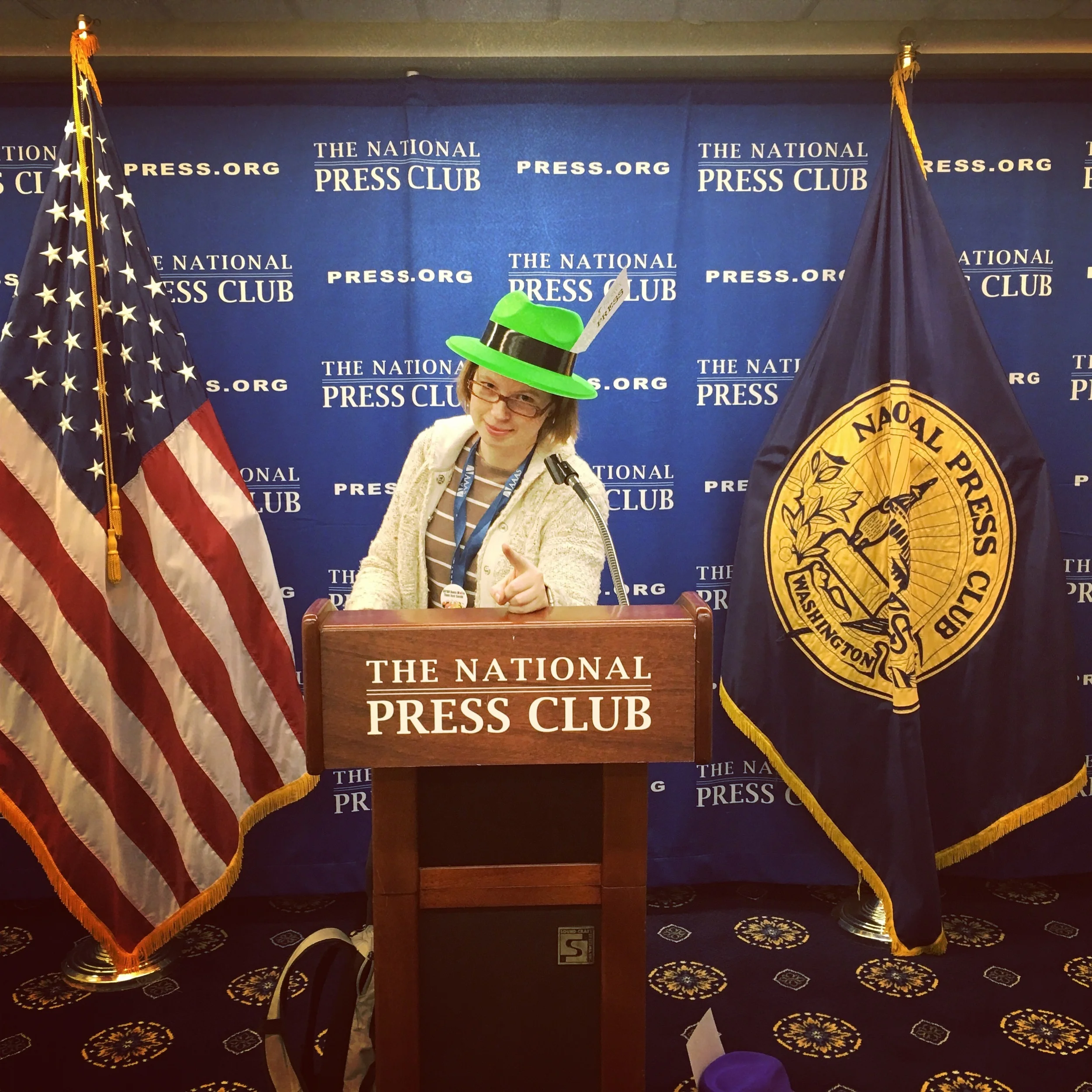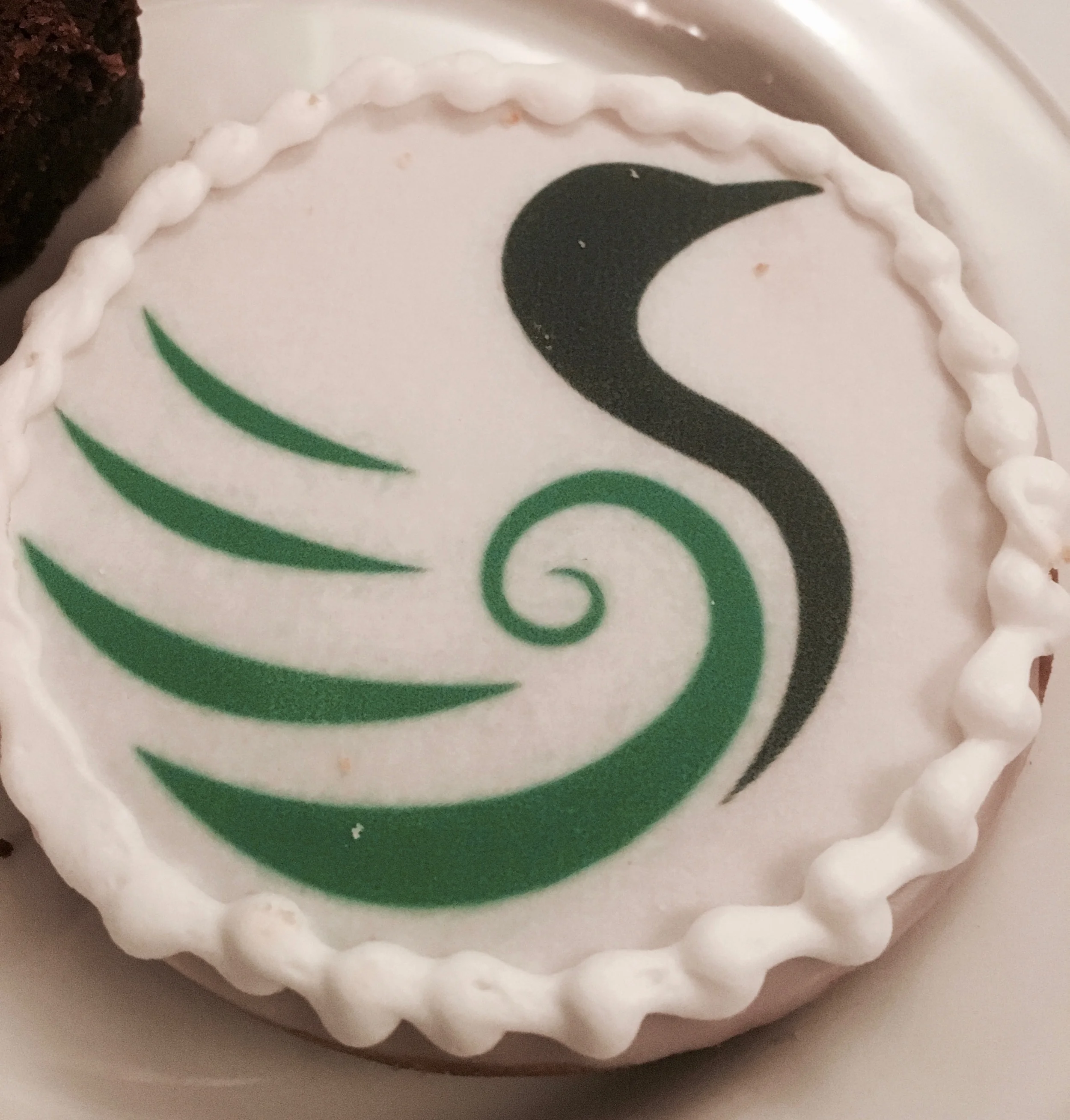"I would never do a PhD! It's completely useless. An utter waste of time!"
So. This was awkward. I looked down at my plate. It held a cookie decorated with a green duck.
The obligatory selfie. The hats were an optional addition at the podium.
The duck was the logo of the D. C. Science Writers Association who were hosting a party for all the science writers attending this year's American Association for the Advancement of Science meeting in Washington, D. C.. Somewhat surprisingly, this included me, since I was travelling with the public relations team of my university. We had a booth in the exhibition hall to introduce our research activities to journalists and anyone else who might be interested. At this booth was a magazine with a collection of research stories that I had largely written. It was shiny and had given me press status for the event.
The party was held at the National Press Club, which had made the event worth attending on its own. Located close to Macy's in central DC, the National Press building is an impressive piece of architecture. The top most floor is devoted to the Club, with its walls lined with photographs of prominent visitors who have spoken at the Club's podium. The gallery includes a large fraction of U.S. Presidents, and all since Roosevelt have at least visited. The podium itself sat in one room off the main hallway, set up for the taking of selfies for the Club's less eminent and shameless guests. I had already visited. In another, larger room, a roaring fire was the centerpiece for a number of comfy chairs. I could imagine myself strolling in to put the final touches to an investigative piece for the New York Times that would crush Trump, anti-vaxxers and whoever made the decision to stop selling Dairylea cheese dunkers in my local supermarket.
Though apparently, that dream was over if I held a doctorate.
Duck cookie
The person speaking out so strongly against this particular higher degree was on the public relations team from Boston University. At least, I think that is what her badge said. I was trying not to make eye contact. Her remarks were addressed to two wide-eyed interns who were attending the AAAS meeting for the first time. To be fair, I didn't entirely disagree with her point. A PhD is a research qualification. It doesn't teach you how to write nor give you a wide breadth of knowledge across different scientific fields. Quite possibly, most science communicators who hold PhDs are also active researchers (like myself), or considered it earlier in their careers. Still, I resented being completely written off.
"I have sometimes found it useful when talking to scientists," I volunteered hesitantly. "Knowing that I have done research myself makes people more comfortable talking to me than a journalist."
It had happened at least a couple of times that a scientist had said they would talk to me, but not someone from general media. Research is a perpetual work-in-progress and so the newest results tend to be dripping with the small print of particular experimental conditions. Explaining the prospective impact of a result without over extenuating the claim to solve black holes, cancer and world hunger can worry scientists. It is something the press doesn't have the cleanest reputation for.
"What do you think?" My anti-PhD PR expert seemed unimpressed as she turned to another science writer. "Do you ever find scientists worried about talking to us?"
The answer was somewhat non-committal. As it happened, one of the interns was hoping to not continue her studies into the PhD. That pretty much settled the debate, even for me: struggling through 3 - 7 years (depending on country) of research with no interest in research is reserved for those who deserve a special kind of hell.
I agreed politely and watched the Boston PR person as I bit the head off my duck cookie.

